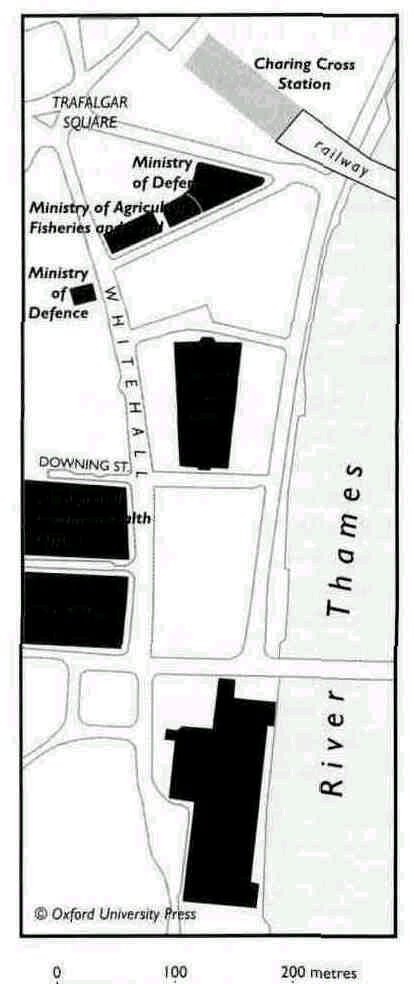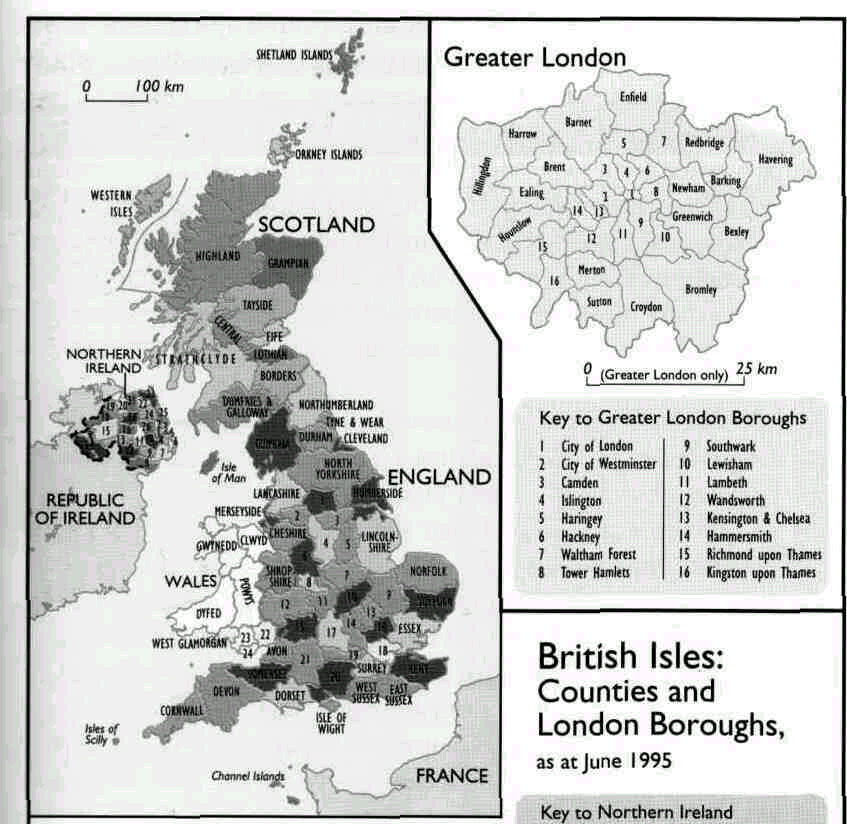
- •20 Food and drink 184
- •21 Sport and competition 191
- •23 Holidays and special 208 occasions
- •Introduction
- •10 I Country and people
- •12 I Country and people
- •14 I Country and People
- •2 History
- •16 2 History
- •18 2 History
- •It was in this period that Parliament began its gradual evolution into the democratic body which it is today. The word 'parliament',
- •20 2 History
- •22 2 History
- •24 2 History
- •26 2 History
- •28 2 History
- •30 2 History
- •32 3 Geography Climate
- •It was in Britain that the word 'smog' was first used (to describe a
- •36 3 Geography
- •38 3 Geography
- •40 3 Geography
- •Part of Snowdonia National Park
- •4 Identity
- •44 4 Identity
- •IrroubleatLllangybi
- •46 4 Identity
- •48 4 Identity
- •50 4 Identity
- •52 4 Identity
- •54. 4 Identity
- •5 Attitudes
- •58 5 Attitudes
- •60 5 Attitudes
- •62 5 Attitudes
- •64 5 Attitudes
- •66 5 Attitudes
- •In the history of British comedy,
- •6 Political life
- •68 6 Political life
- •70 6 Political life
- •72 6 Political life
- •74 6 Political life
- •6 Political life
- •78 7 The monarchy
- •The reality
- •84 8 The government
- •86 8 The government
- •88 8 The government
- •In comparison with the people of
- •9 Parliament
- •92 9 Parliament
- •94 9 Parliament
- •96 9 Parliament
- •100 10 Elections
- •102 10 Elections
- •104 10 Elections
- •I've messed up my life
- •Serb shelling halts un airlift
- •2 January is also a public holiday in
- •Identity 42—55
- •Illustrations by:
86 8 The government
^Whitehall
This is the name of the
street in London which runs from Trafalgar Square to the Houses of
Parliament. The Foreign and Commonwealth Office and the Ministry of
Defence are both located here. These are the two oldest government
departments. The term 'Whitehall' is sometimes used to refer
to the government as a whole (although other departments are
in other streets nearby). This is done when the writer or speaker
wishes to emphasize the administrative aspects of government.
The phrase, 'the opinion in Whitehall...' refers not only to the
opinions of government ministers but also, and perhaps more so, to
the opinions of senior civil servants.
that four government ministers 'verbally abused'
their civil service advisers and generally treated them 'with
contempt'. It was the first time that such a complaint had been
made. It seemed that the unpre-cedentedly long period of government
by the same party (the Conservatives - see chapter 10) had shifted
the traditional balance of power.
However,
the British civil service has a (largely) deserved reputation
for absolute political impartiality. Many ministers have remarked
on the struggle for power between them and their top civil
servants, but very few have ever complained of any political bias.
Top civil servants know that their power depends on their staying
out of'politics' and on their being absolutely loyal to their
present minister. Modern
criticism of the civil service does not question its loyalty but
its efficiency. Despite reforms, the top rank of the civil service
is still largely made up of people from the same narrow section of
society - people who have been to public school (see chapter 14)
and then on to Oxford or Cambridge, where they studied subjects
such as history or classical languages. The criticism is therefore
that the civil service does not have enough expertise in matters
such as economics or technology, and that it lives too much in its
own closed world, cut off from the concerns of most people in
society. In the late twentieth century, ministers tried to overcome
these perceived deficiencies by appointing experts from
outside the civil service to work on various projects and by having
their own political advisers working alongside (or, some would say,
in competition with) their civil servants. Central
and local government Some
countries, such as the USA and Canada, are federal. They are made
up of a number of states, each of which has its own government with
its own powers to make laws and collect taxes. In these countries
the central governments have powers only because the states have
given them powers. In Britain it is the other way around. Local
government authorities (generally known as 'councils') only have
powers because the central government has given them powers.
Indeed, they only exist because the central government allows them
to exist. Several times in the last hundred years British
governments have reorganized local government, abolishing some
local councils and bringing new ones into existence. The
system of local government is very similar to the system of
national government. There are elected representatives, called
councillors (the equivalent of MPs). They meet in a council
chamber in the Town Hall or County Hall (the equivalent of
Parliament), where they make policy which is implemented by local
government officers (the equivalent of civil servants).
|

Central and local government 87
„,-.,....,,
I BELFAST 14
FERMANAGH Key to England and Wales
, newtownabbey
15 OMAGH ^
1
WEST YORKSHIRE 1} BEDFOMSHIIIE
3 CARRICKFERGUS 16 COOKSTOWN
2
GKEATER MANCHESTEK 14 BUCKINGHAMSHIRE
4 CASTLEREAGH 17 MAGHERAFELT
3
SOUTH YORKSHIRE 15 GLOUCESTERSHIRE
5 NORTH DOWN 18 STRABANE
4
DERBYSHIRE 16 HERTFORDSHIRE
6 ARDS 19 DERRY
5
NOTTINGHAMSHIRE 17 OXFORDSHIRE
7 DOWN 20 LIMAVADY
6
STAFFORDSHIRE 18 GREATER LONDON (see
inset) 8 NEWRY AND MOURNE 21 COLERAINE
7
LEICESTERSHIRE 19 BERKSHIRE
9 BANBRIDGE 22 BALLYMONEY
8
WEST MIDLANDS 20 HAMPSHIRE
10 LISBURN 23 MOYLE
9
CAMBRIDGESHIRE 21 WILTSHIRE
II CRAIGAVON 24 BALLYMENA
10
NORTHAMPTONSHIRE 22 GWENT
12 ARMAGH 25 LARNE
11
WARWICKSHIRE 23 MID GLAMORGAN
13 DUNGANNON 26 ANTRIM
12
HEREFORD AND WORCESTER 24 SOUTH GLAMORGAN
©
Oxford University Press
Most British people have far more direct dealings with local
government than they do with national government. Local
councils traditionally manage nearly all public services. Taken
together, they employ three times as many people as the national
government does. In addition, there is no system in Britain whereby
a national government official has responsibility for a
particular geographical area. (There is no one like a 'prefect' or
'governor'). In practice, therefore, local councils have
traditionally been fairly free from constant central interference
in their day to day work.
Local councils are allowed to collect one kind of tax. This is a
tax based on property. (All other kinds are collected by central
government.) It used to be called 'rates' and was paid only by
those who owned property. Its amount varied according to the size
and location of the property. In the early 1990 s it was replaced
by the 'community charge' (known as the 'poll tax'). This charge
was the
>
Counties, boroughs, parishes
Counties
are the oldest divisions of the country in England and Wales. Most
of them existed before the Norman conquest (see chapter 2). They
are still used today for local government purposes, although a few
have been 'invented' more recently (e.g. Humberside) and others
have no function in government but are still used for other
purposes. One of these is Middlesex, which covers the western part
of Greater London (letters are still addressed 'Middx.') and which
is the name of a top-class cricket team. Many counties have 'shire'
in their name (e.g. Hertfordshire, Hampshire, Leicestershire).
'Shires' is what the counties were originally called.
Boroughs
were originally towns that had grown large and important enough to
be given their own government, free of control by the county.
These days, the name is used for local government purposes only in
London, but many towns still proudly describe themselves as Royal
Boroughs.
Parishes
were originally villages centred on a local church. They became a
unit of local government in the nineteenth century. Today they are
the smallest unit of local government in England.
The name 'parish' is still
used in the organization of the main Christian churches in
England (see chapter 13).

